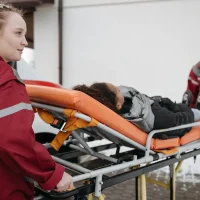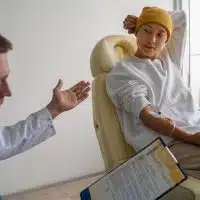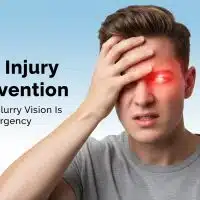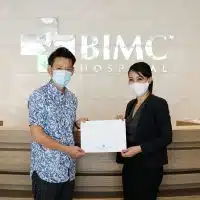
At BIMC Hospital Kuta, we know what a huge burden cancer can be. Perhaps the greatest ally in the battle against cancer is: early detection. It drastically alters the effectiveness of treatment and the rates of survival when we catch cancers in their infancy. In our reaffirmation of this commitment on World Cancer Day, celebrated on 4 February 2025, we promise to provide complete cancer screening services in our community.
The Critical Need for Regular Cancer Screenings

Very subtle symptoms are often the only indication of serious cancers, so a cancer goes through an early diagnosis without any apparent signs, and the insidious disease lags for years without a man having symptoms. It is vitally important to have as many scans as possible because that is how one can diagnose and catch an early case of cancer and refer for care. The CDC says: “early detection through screening tests can find cancers when treatment works best.”
Benefits of Being Diagnosed Early

- Increased Chances of Survival: Early diagnosis increases the opportunity for successful therapy.
- Prolongs the Course of Treatment: Early-stage cancers typically have less aggressive and/or intensive treatment requirements associated with them.
- Better Quality of Life: Early intervention is associated with better outcomes leading to better quality of life for the patient.
Common Cancer Screenings and Their Importance
Understanding which screenings are appropriate for you is vital. Here are some common cancer screenings:
Breast Cancer
- Mammograms: Recommended annually for women aged 40 and above. Mammograms can identify tumors that are too small to be detected by touch. According to the American Cancer Society, undergoing regular mammograms can help lower the risk of death from breast cancer.
Cervical Cancer
- Pap Smear and HPV Testing: Women aged 25 to 65 should have a Pap smear every three years or co-testing (Pap smear and HPV test) every five years. Early detection can prevent most cervical cancers.
Colorectal Cancer
- Colonoscopy: Starting at age 45, both men and women should undergo regular screenings. Early detection can lead to the removal of precancerous polyps, preventing cancer development.
Prostate Cancer
- PSA Blood Test: Men aged 50 and above should discuss the benefits and risks of this test with their healthcare provider to make an informed decision.
Lung Cancer
- Low-Dose CT-Scan: Recommended for individuals aged 50-80 with a significant smoking history. Early detection can improve treatment outcomes.
Barriers to Regular Screenings
Despite the proven benefits, many individuals still avoid regular health screenings for various reasons. Fear and anxiety often play a major role, as the worry about receiving bad news can prevent people from taking that crucial first step. Additionally, a lack of awareness means some individuals simply don’t know which screenings are recommended for their age, medical history, or risk factors.
Lastly, accessibility issues create another hurdle — limited access to healthcare facilities, long waiting times, and financial constraints can discourage people from prioritizing their health. Addressing these barriers is essential to promote regular screenings and early detection.
At BIMC Hospital Kuta, we strive to eliminate these barriers by providing accessible, compassionate, and patient-centered care.
Addressing the Myths About Cancer Screenings
Misinformation can contribute to the reluctance to undergo screenings. Let’s debunk some common myths:
- Myth: “I feel fine, so I don’t need screening.”
Fact: Many cancers do not cause symptoms until they reach advanced stages. Screenings detect cancer early when it is most treatable.
- Myth: “Cancer screenings are painful and risky.”
Fact: Most screening procedures, such as mammograms and Pap smears, cause minimal discomfort and are quick and safe.
- Myth: “If cancer runs in my family, I’ll get it anyway.”
Fact: While genetics can play a role, lifestyle choices and regular screenings can significantly reduce risk and improve early detection.
5 Ways to Reduce Cancer Risk Through a Healthy Lifestyle

While screenings are vital for early detection, adopting a healthy lifestyle can help reduce cancer risk. Here are some essential habits to follow.
1. Maintain a Healthy Diet
Eating a balanced diet rich in fruits, vegetables, and whole grains provides essential nutrients and antioxidants that protect cells from damage. Limiting processed foods, red meats, and sugary drinks can help reduce inflammation and lower cancer risk. Foods high in fiber, such as beans and whole grains, support digestion and remove harmful toxins from the body.
2. Exercise Regularly
Physical activity plays a significant role in reducing the risk of various cancers, including breast and colon cancer. Strive for a minimum of 150 minutes of moderate-intensity physical activity each week, including activities like brisk walking, biking, or swimming. Regular exercise helps regulate body weight, boost immunity, and reduce inflammation, which are crucial for cancer prevention.
3. Avoid Tobacco and Limit Alcohol
Smoking is a leading cause of lung and several other types of cancer, as tobacco contains carcinogens that damage cells. Steering clear of all forms of tobacco greatly reduces the risk of cancer. Additionally, excessive alcohol consumption can lead to cancers of the liver, breast, and esophagus. Limiting alcohol intake or avoiding it altogether reduces exposure to harmful toxins.
4. Protect Your Skin
Prolonged sun exposure can increase the risk of skin cancer, including melanoma. Wearing sunscreen with SPF 30 or higher, seeking shade, and wearing protective clothing can help prevent UV damage. Avoiding tanning beds and being mindful of sun exposure during peak hours (10 AM – 4 PM) further reduces risk.
5. Stay Vaccinated
Some viruses, such as human papillomavirus (HPV) and hepatitis B, are linked to cancers like cervical and liver cancer. Vaccination against these viruses provides protection and reduces the likelihood of developing related cancers. Staying up to date with recommended vaccines is a proactive step in cancer prevention.
Our Commitment to Your Health
We are dedicated to offering comprehensive cancer screening services tailored to your needs. Our team of experienced healthcare professionals utilizes state-of-the-art technology to ensure accurate and timely results. We believe in empowering our patients with knowledge and support throughout their healthcare journey.
At BIMC Hospital Kuta, we offer:
- Personalized Risk Assessments: Our medical experts will assess your family history, lifestyle, and other risk factors to recommend the most appropriate screenings.
- Cutting-Edge Screening Technology: We utilize advanced diagnostic tools for precise and reliable results.
- Compassionate and Professional Care: Our team prioritizes patient comfort and well-being throughout the screening process.
Take Action Today!
Your health is our priority. Regular screenings are a proactive step toward a healthier future. We encourage you to schedule your cancer screening with us today. Early detection saves lives, and together, we can make a difference. Contact BIMC Hospital Kuta to book your appointment and learn more about our services. Visit our website: https://bimcbali.com/bimc-hospital-kuta











